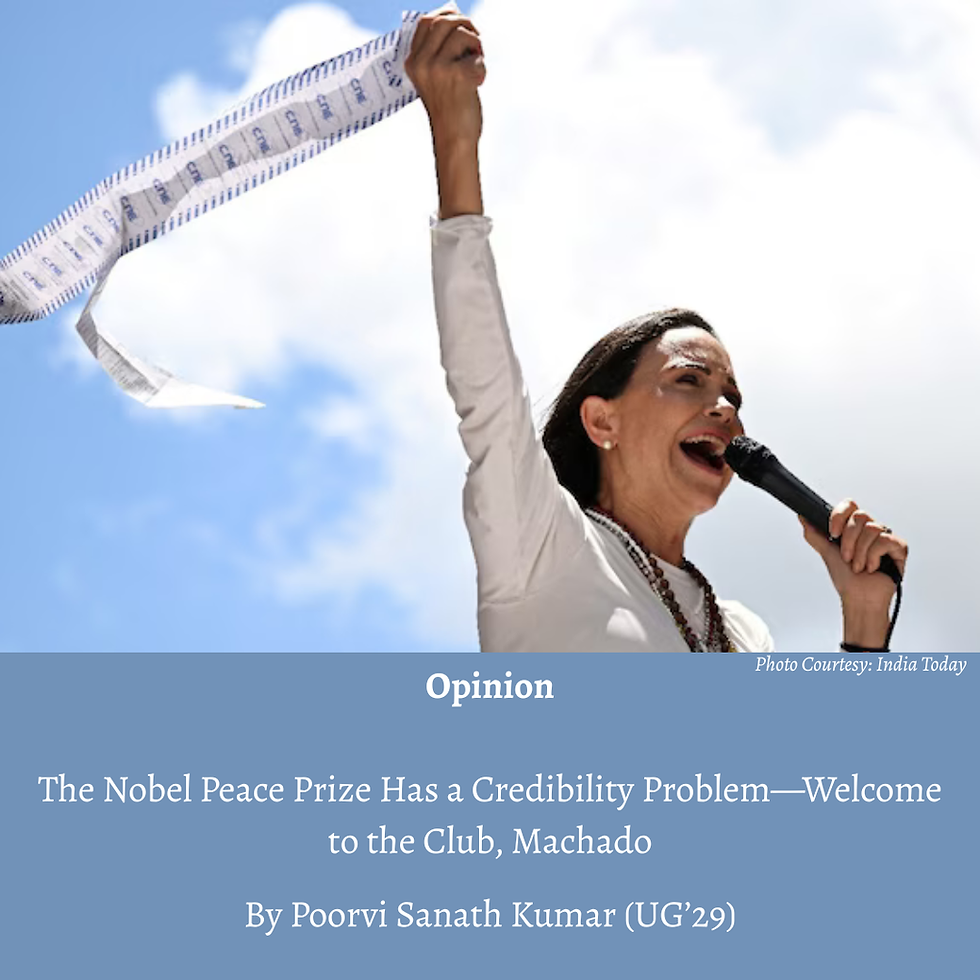On Grades and Anxiety – The Toxic Academics at Ashoka
- The Edict
- Jun 6, 2020
- 3 min read
By Aggam Walia
Summers have always been busy for me. I make sure that I utilise the two-month-long break by doing something productive, like an internship or volunteer work. But this year, things are different. Because of the national lockdown, I had to cancel all my plans. This has resulted in me spending long, stressful hours thinking about how I’m wasting my time. While I understand that the situation is beyond my control, I cannot help but feel anxious about being unproductive and having nothing to show for these months. After some deep introspection, I realise that part of my anxiety closely ties in with the nature of academic and extra-curricular competition at our university.

I remember that I spent my first month at Ashoka extremely excited about my courses, until I talked to some seniors about grades. They introduced me to the Dean’s List and spoke at length about what is considered to be good GPA. They told me to choose my courses based on their grading policy. This kind of focus on grades changed the nature of the excitement I had previously felt. From being excited to learn and explore different disciplines, I became excited about the possibility of being included on the Dean’s List. The end destination of academic labour seemed way more attractive than the journey of learning itself.
It should be noted that some disciplines are more competitive than others. Still, the university officially puts more emphasis on intellectual engagement than on grades and careers. In my experience, this emphasis does not materialise in our classrooms and residential spaces.

Most Ashokans care deeply about their academic performance and take their intellectual pursuits seriously. They also actively work on their extracurriculars. What feeds my anxiety is the need to differentiate myself in a crowd full of motivated, talented people. From what I have observed, many people on campus struggle with forming a unique identity. Since good grades and an elaborate resume are seen as tangible indicators of success, people often rely on these indicators to set themselves apart from others.
A part of the opposition to the double-A system last semester stemmed from this struggle. Some people didn’t want the double-A system because they wanted grades for personal distinction. This struggle for identity, which values grades and resumes over learning and experience, creates a toxic, competitive environment on campus.

In my experience, a lack of academic modesty is the primary reason behind the creation of that environment. A lot of us are too quick to flaunt our grades, or to compare them with our peers’. When competition between two people becomes personal, grades can be used as weapons to prove one’s intellectual worth. This can be seen in class participation, where people are keen to up one another for intellectual brownie points. What matters in such discussions becomes not how much we can learn from one another, but how knowledgeable we appear to be.

I now realise that I want to do away with such competition. Competition can be healthy, but the kind of competition I see on campus has skewed our priorities. People aren’t motivated by the intrinsic desire to learn, instead the motivation is often based on the end goals. This can take a serious toll on our mental health. Living in such close proximity means that whatever I do (or don’t do) is clearly visible. The anxiety of not doing enough can be very burdensome in a happening campus where it isn’t possible to be present for all events of interest. These factors create an intense academic environment which can be severely suffocating at times.
I am not condemning the fact that people become competitive because unfortunately, it corresponds to the reality of the world. Competition is necessary to get by, even when it gets toxic. Most people apply to graduate school and for jobs after college, and competition for this is inevitable. But I still feel cheated because I do want to enjoy the learning process without worrying too much about my resume. I suppose that the conflict I’m facing is my inability to reconcile the external reality with my internal desire to learn without constraints.
Is there a way to change this culture? Perhaps not, as our university doesn’t exist in isolation and is shaped and influenced by the highly competitive modern society. However, I do hope that we could work together as a community in addressing the anxieties and insecurities people face to make the university experience more enjoyable and inclusive.
About the author :
Aggam is a rising second year. His interests include politics, food and random conversations on the meaning of life.







Comments